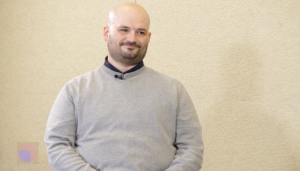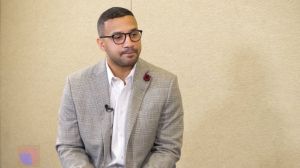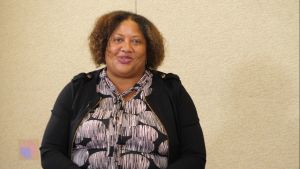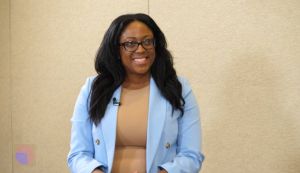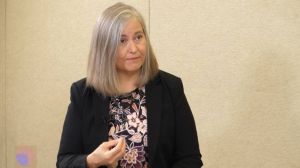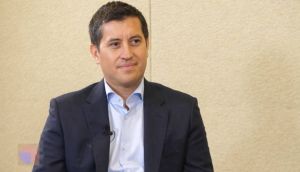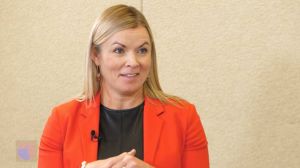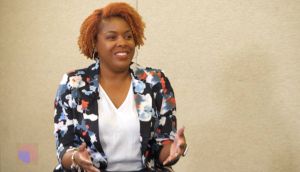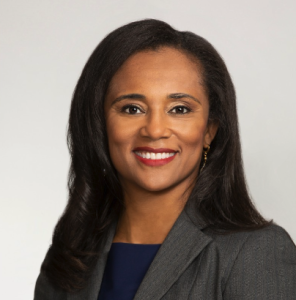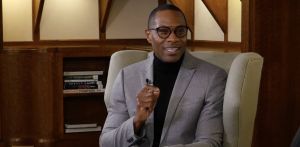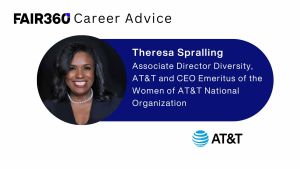Roger Ferguson is the President and CEO of TIAA. TIAA ranked No. 27 on the 2017 Fair360, formerly DiversityInc Top 50, up six spots from a year ago. The organization ranked on Fair360, formerly DiversityInc’s Top 50 for the fifth consecutive year, due largely in part to Mr. Ferguson and his direct reports’ strong, transparent and purposeful commitment to diversity and inclusion management. Mr. Ferguson chairs TIAA’s executive diversity council, a group tasked with setting and carrying out the organization’s diversity and inclusion strategy and holding key stakeholders accountable for results.
I was fortunate to interview Mr. Ferguson to get his insights on how mentors and sponsors can help you with your career, how to stay on top of your game and the importance of empathy.
Shane Nelson: When you were younger, you spent a lot of time talking to your dad about banks and investments. And your mom, a public school teacher, taught you to stay in school as long as you can. But when President Lyndon Johnson nominated the first Black governor of the Fed when you were 15, that really opened your eyes. How important is it for racially diverse people to see people like them in prominent, senior leadership roles?
Roger Ferguson: I think it’s critically important for anyone but certainly racially diverse people to see someone who looks like them in prominent roles for obvious reasons. It’s all about role modeling. It’s all about imagining yourself doing something, and it’s a lot easier for your young person to imagine yourself in a role if you see someone there who shares something in common with you.
It obviously could be race, could be gender, but in some cases, other things. In my case it was Andy Brimmer, who not only was an African American, but he came from a pretty humble background. What I learned about him, or from him, was something about a career path. It’s not just that Andy looked a bit like me. There was a path that one could follow, and so it’s not just, “Here’s another Black guy who did something.” It’s also, “Here’s how one does it.” So it’s both. It’s nice to see someone who looks like you, but it’s also nice to have that person embody a way forward.
Shane Nelson: Absolutely. I asked that question because when we (Fair360, formerly DiversityInc) look through the Top 50 data, we often see that there are not a lot of racially diverse senior executives, let’s say in the C-suite. We often recommend to companies, or try to warn them, that if you don’t have any racially diverse or women executives, then it’s going to be hard for you to retain some of your racially diverse and women high potentials. Folks want to see people that look like them in senior leadership roles. If they think it’s never going to happen for them because they don’t see people like them in those roles, they’ll go elsewhere where they do see it. So that’s why I started with that question.

Roger Ferguson: I agree completely.
Shane Nelson: How did mentors and sponsors help you in your career? Were you a good mentee? Could you have advanced without these sponsors?
Roger Ferguson: I think anyone successful, if he or she is honest, would say there are mentors and sponsors who helped them along the way. In my case, they tended to be teachers and professors who either saw something in me that they wanted to encourage or frankly, in one case in particular, reinforce what seemed to be a kooky idea of getting both a law degree and a Ph.D. in economics. And it’s all along the way.
I can identify at almost every stage in my career someone who believed in me and, in that sense, became a sponsor. I’ve also had folks who were role models, one might describe as mentors, even though they didn’t know about me. My story about Andy Grimmer is one example. The person I didn’t meet until I was in my 40s but yet he helped me think about and shape my career.
In order to be a good mentee, and I sometimes use the word protégé as opposed to mentee, you have to in some sense validate the trust that the mentor or sponsor may have in you. No one wants to sponsor or mentor someone who keeps falling short of the expectations. In my case, I was a reasonably good protégé, in the sense that I did not embarrass people. I continued to work hard to learn. I didn’t take their support for granted. That’s really what one wants to see. If you’re a mentor or sponsor, it’s a reciprocal, mutually beneficial kind of relationship. Sponsors and mentors, frankly, want to be associated with success.
There’s nothing quite like the pride of saying, “Here’s a young person that I helped to bring along and boom, they’ve turned out to be successful.” I hope I was perceived to be a good protégé/mentee/student, in the sense of working hard, taking lessons on board and then ultimately leading to success.
And let me put a footnote there. I talk about taking lessons on board. It’s quite frustrating, I would imagine, to be a sponsor or mentor and provide wisdom and experience and have the protégé ignore the lessons. The other part of being the good recipient is to then act on the lessons as best you can.
I think it’s very hard to advance without sponsors. There are conversations that go on when you’re not in the room, and the sponsor is in the room. Part of what a good sponsor does is be an advocate and feed back, quietly — you need to do this, you need to do that, you need to be a little better here or speak up more or speak up less, etc. A good sponsor, a good mentor is also a good communicator of what’s being said around you when you’re not there. You need them to advance as I did.
Shane Nelson: Well said. What kinds of things would you recommend that people do to stay on top of their game and to signal to others that they are worthy of investment?
Roger Ferguson: I think the most important thing is to demonstrate an ongoing curiosity and to continue to be willing to invest in your skillset. You can’t stay on top of a game if you’re playing by the rulebook from years ago, or the knowledge set from years ago.
I’m involved heavily in finance and investments. I spend a huge amount of my time talking to other folks who are in the investment business and reading across a wide range of journals. I think there’s broad curiosity, and a desire to stay current is the most important thing.
You have to think about this as an inter-generational question. Some of my mentors are several generations younger than I am because I need to understand how the millennials are thinking about investments and financial literacy, because that’s going to help me to help guide this company and, as you say, stay on top of your game.
Shane Nelson: That’s a great point. You once mentioned, “I have a very academic-y background for a CEO, which gives me empathy.” Can you elaborate on that? How has that helped you and your organization address issues affecting your employees, such as racial tensions in the United States?
Roger Ferguson: There’s no question in my mind that people who come up in the academic world or academics have one very interesting thing in common, which is all of them are in pursuit of a truth in their discipline or, indeed, the truth in their discipline.
The reason they do that, the best ones, is because they want to try to make the world, in some sense, a better place by creating knowledge, by transferring or transforming or translating fundamental research into positive outcomes, understanding how the world works better. All of that, I think, drives toward a kind of empathy and understanding that part of your role in life is to make the world a better place, and I think that’s very much an academic kind of trade.
Hopefully that kind of empathy and understanding that there’s a mission to make the world a better place is very relevant to this company, for two reasons. One is we are a mission-driven organization. My ability to communicate with authenticity and passion, both the personal desire and through the company and institutional desire to make the world a better place, is something I think comes originally out of my academic kind of training.
By definition, that then translates into underrepresenting minorities, women and other people who may be feeling out of the mainstream. It also translates in how one thinks about folks in the majority as well.
Everyone can feel, at some point, disaffected, be they a minority or be they in the majority, and so part of the empathy that I think is relevant in making the world a better place is also helping to meet people where they may be in trying to make them feel much more included in the organization.
It’s all of a piece, and it all strives with the notion of looking for facts and using those facts to try to make the world a better place, and that just leads to a real understanding of how others might be experiencing the world and what one can do to help make them feel more included and therefore become their true selves at work.


